Pregnant women/mothers with newborns with hiv/aids: understanding the deficits and factors that contribute to engaging in self-care
Gestantes/puérperas con el vih/sida: conociendo los déficits y los factores que contribuyen para el compromiso con el autocuidado
Gestantes/puérperas com hiv/aids: conhecendo os déficits e os fatores que contribuem no engajamento para o autocuidado
Lígia Maria Scherer; Miriam Süsskind Borenstein; Maria Itayra Padilha
Abstract
The objective of this qualitative, descriptive, exploratory study is to better understand the deficits of self-care among pregnant women/ mothers with newborns with HIV/AIDS and the factors that influence engagement with self-care. The study was carried out with ten pregnant women/mothers of newborns with HIV who use the Specialized Service for STD/Aids in Rio Grande do Sul, Brazil. The data was collected through a focus group and individual interviews, using a semi-structured script. After analyzing the data through content analysis, the following results were reached: the pregnant women/ mothers of newborns with HIV present deficits to self-care related to nutrition and feeding, water ingestion, sleep and rest, sexual life, leisure and recreation, and social interaction. They live so continuously with factors that contribute to engaging in self-care as factors that make this process difficult. Even with these difficulties, the pregnant women/ mothers of newborns have been able to survive into the isolation, the prejudice, receiving a support from their families and from the health care team, especially from nurses.
Keywords
Resumen
The objective of this qualitative, descriptive, exploratory study is to better understand the deficits of self-care among pregnant women/ mothers with newborns with HIV/AIDS and the factors that influence engagement with self-care. The study was carried out with ten pregnant women/mothers of newborns with HIV who use the Specialized Service for STD/Aids in Rio Grande do Sul, Brazil. The data was collected through a focus group and individual interviews, using a semi-structured script. After analyzing the data through content analysis, the following results were reached: the pregnant women/ mothers of newborns with HIV present deficits to self-care related to nutrition and feeding, water ingestion, sleep and rest, sexual life, leisure and recreation, and social interaction. They live so continuously with factors that contribute to engaging in self-care as factors that make this process difficult. Even with these difficulties, the pregnant women/ mothers of newborns have been able to survive into the isolation, the prejudice, receiving a support from their families and from the health care team, especially from nurses.
Palabras clave
Resumo
Trata-se uma pesquisa qualitativa do tipo exploratório-descritiva cujo objetivo foi conhecer os déficits de autocuidado de gestantes/puérperas com HIV/AIDS e os fatores que influenciam no engajamento para o autocuidado. O estudo foi realizado com dez gestantes/puérperas com HIV que utilizam um serviço especializado em DST/AIDS no Rio Grande do Sul. Os dados foram coletados por meio de um grupo focal e entrevistas individuais, com um roteiro semiestruturado. Após análise dos dados, utilizando-se a análise de conteúdo, chegou-se aos seguintes resultados: as gestantes/puérperas com HIV apresentam déficits de autocuidado relacionados com a alimentação, ingesta hídrica, sono e repouso, vida sexual, lazer e recreação e interação social. Convivem tanto com fatores que contribuem para o engajamento no autocuidado quanto com fatores que o dificultam. Embora com dificuldades, as gestantes/puérperas têm conseguido sobreviver ao isolamento e ao preconceito graças ao apoio familiar e da equipe de saúde, em especial das enfermeiras.
Palavras-chave
References
1. Nascimento D. O final do século XX. In: Nascimento D, organizadora. As pestes do século XX: tuberculose e Aids no Brasil, uma história comparada
2.. Ministério da Saúde (BR) Programa Nacional de DST/AIDS. Dados Epidemiológicos AIDS.[citado 10 jul 2008]. Disponível em
3. Nascimento AMG, Barbosa CS, Medrado B. Mulheres de Camaragibe: representação social sobre a vulnerabilidade feminina em tempos de AIDS. Rev Bras Saude Matern Infant 2005 jan/mar; 5(1): 77-86.
4. Ministério da Saúde (BR). Aids: recomendações para prevenção da transmissão vertical do HIV. Brasília (DF); 2004.
5. Ministério da Saúde (BR). Conselho Nacional de Saúde. Resolução n° 196, de 10 de outubro de 1996. Diretrizes e normas regulamentadoras de pesquisas envolvendo seres humanos. Inf Epidemiol SUS 1996; 5 (2 supl 3): 13-41.
6. Bardin L. Análise de conteúdo. Lisboa (PO): Ed 70; 1979.
7. Foster PC, Janssens NP. Dorotéa Orem. In: George J. Teorias de enfermagem: os fundamentos para a prática profissional. Porto Alegre (RS): Artes Médicas; 1993. p.90-107.
8. Ministério da Saúde (BR). Agência Nacional de Saúde Suplementar. Manual técnico de promoção da saúde e prevenção de riscos e doenças na saúde suplementar. Rio de Janeiro (RJ); 2006.
9. Gonçalves ES. Nutrição superpositiva 2: para gestantes e crianças vivendo com HIV/AIDS. Rio de Janeiro (RJ): ABIA; 1999.
10. Bastos DS, Borenstein MS. Identificando os déficits de autocidado de clientes hipertensos de um centro municipal de saúde. Texto Contexto Enferm 2004 jan/mar; 13 (1): 92-99.
11. Bella ZJD, Martins KF, Veloso I, Bortolini MAT, Sartori MGG, Girão MJBC. Infecção urinária na mulher. [citado 21 jul 2006] Disponível em
12. Alcântara IA. Água
13. Cronfli RT. A importância do sono. Cérebro&Mente: revista eletrônica de divulgação científica em neurociência [periódico on-line]. 2003 abr; [citado 23 jun 2006 ]; [1 tela]. Disponível em:
14. Reis RK, Gir E. Dificuldades enfrentadas pelos portadores sorodiscordantes ao HIV na manutenção do sexo seguro. Rev Latino-am Enfermagem 2005 jan/fev; 13(1): 32-37.
15. Vieira M, Padilha MICS. O cotidiano das famílias que convivem com o HIV: um relato de experiência. Esc Anna Nery Rev Enferm 2004 abr; 11(2): 351-357.
16. Tsunechiro MA, Bonadio IC. A família na rede de apoio a gestante. Fam Saude Desenvol 1999 jan/dez; 1(1/2):103-06.
Submitted date:
03/13/2008
Reviewed date:
06/28/2008
Accepted date:
09/11/2008

